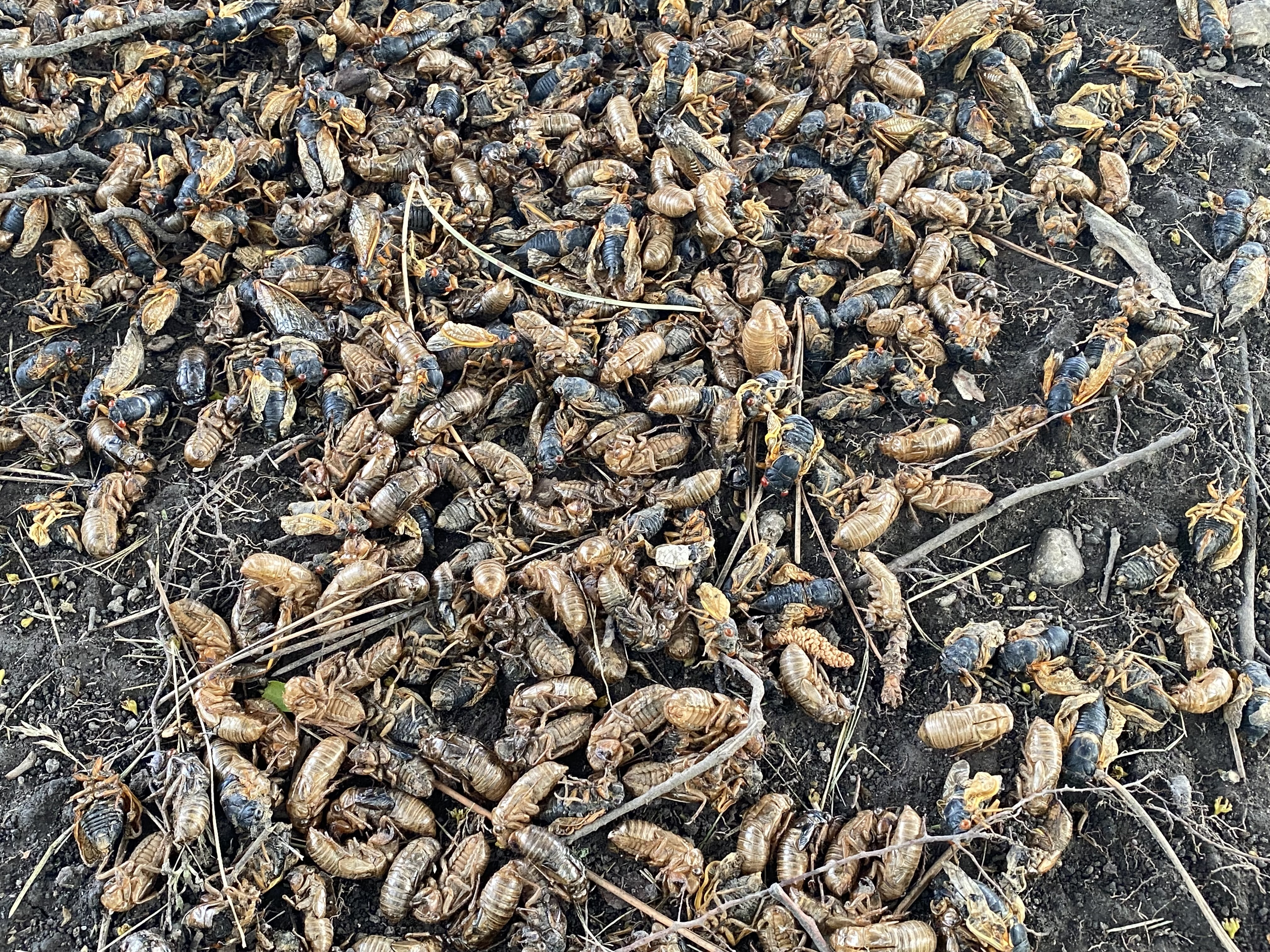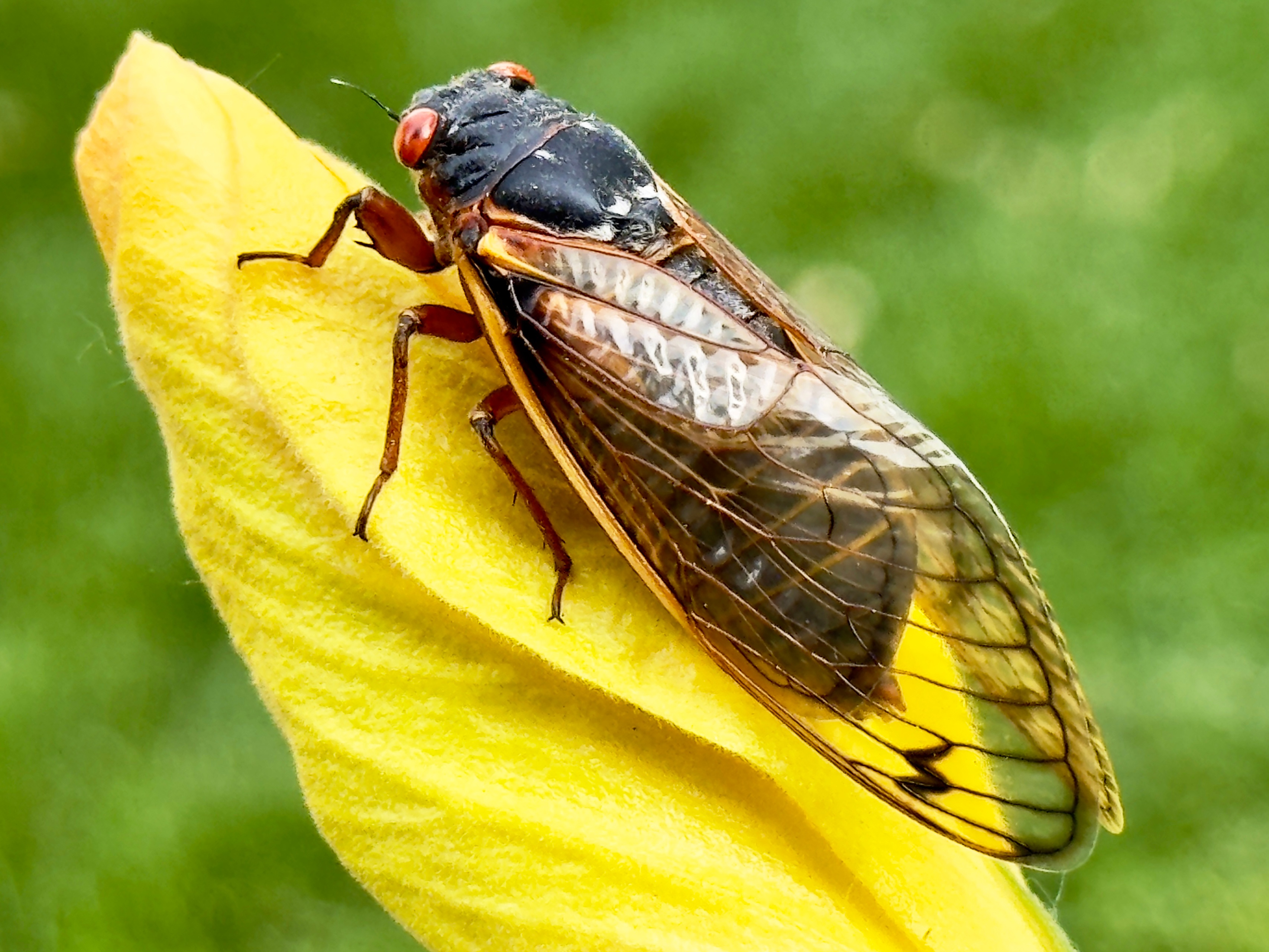No matter how you feel about cicadas, whether you don't mind having them around or find these insects annoying, they aren't going anywhere just yet.
But it appears their time will run out soon.
Cicadas have been buzzing for several weeks across many Chicago-area communities, leading some to wonder if they'll be gone in the coming days.
In some areas, that will likely be the case.
Cicadas have a lifespan of approximately four weeks. So, for a lot of places that have been dealing with droves of the noisy but relatively harmless insects for a while, the end is likely near.
Dr. Gene Kritsky, dean of Behavioral and Natural Sciences at Mount St. Joseph University in Cincinnati, who has been tracking the emergence across the U.S. and particularly in Illinois, said the emergence will likely last through at least mid-June.
"The adults will still be singing loudly until mid-June, and then dwindle down towards the end June," he said.
In a May 29 interview with NBC Chicago, the professor said cicadas could still continue emerging for another 10 days.
Kritsky noted that numbers of cicadas emerging from the ground would decline over the five following days - from roughly May 30 to June 3. However, that won't mean an end to the noise or the sightings. That's because cicadas will still need to live out their life cycles above ground.
Feeling out of the loop? We'll catch you up on the Chicago news you need to know. Sign up for the weekly> Chicago Catch-Up newsletter.
So where have they been seen the most? What about the least?
A cicada map that tracks spottings across the U.S. shows some of the highest sightings have been reported in suburbs west of Chicago, particularly near the Downers Grove area. The Oak Park area has also seen a higher number of sightings as well as some southern suburbs around the Palos Park and Park Forest areas and northern suburbs like Lake Forest and Highland Park.
While some communities might be nearing the end, the cicada frenzy for others might not be over yet.
Experts have long said the emergence would be patchy.
"You must bear in mind, they only emerge from under trees," Kritsky told NBC Chicago in February. "And so if you're in a wooded area, and they've already been laying eggs there, it could be quite dense indeed. But in many cases, we're finding these cicada emergences to be relatively patchy. Clear cutting of forests for agriculture, clear cutting of forests for urban development - all that reduces cicada egg laying sites."
Sightings in the Chicago area soared in mid-May following several days of hot weather.
Warm temperatures during the weekend of May 18 and 19 likely sparked an increase in the emergence. Experts had long insisted it would begin in force once ground temperatures reached 64 degrees.
The historic 2024 emergence involves two broods of cicadas - Brood XIII and Brood XIX - emerging simultaneously. Those two broods of 13-year and 17-year cicadas haven't emerged together in more than 220 years.




